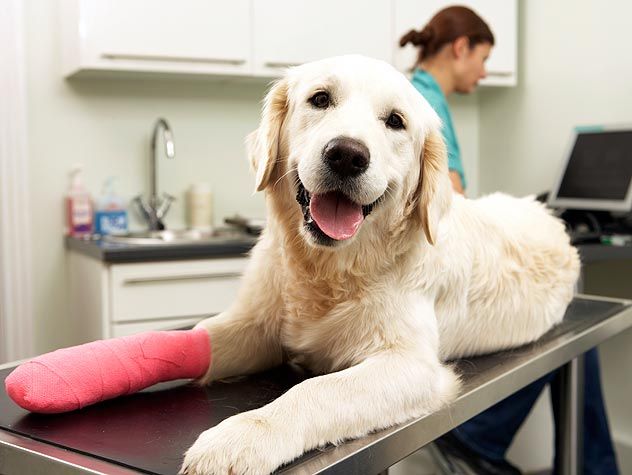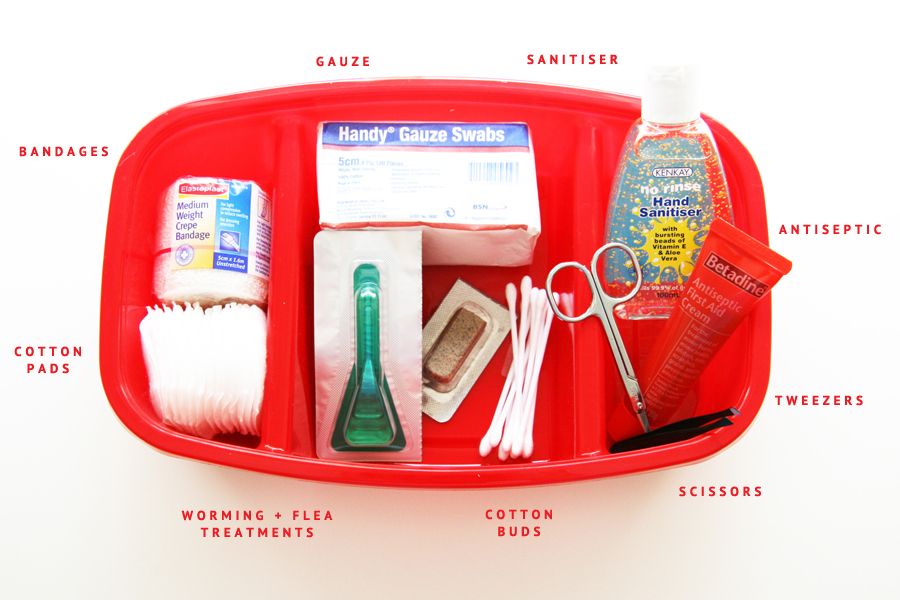As we are in the middle of National Pet First Aid Awareness month, coinciding with spring, and our world beginning to open up as our COVID-19 restrictions are loosening up, we should be starting to get out with our dogs a lot more.
More outdoor time and more exercise can lead to more injuries, and we here at Fi want to make sure you're prepared—just in case!

For one thing, it’s essential to have your veterinarian’s information readily available, as well as the contact info for your nearest emergency hospital. You should also have quick access to your pet’s vital info—vaccine history, any medications that he or she is taking, and any disease conditions you may be treating.
Do you have your first-aid kit ready? If not, let us help you put one together:
- Adhesive tape
- Cotton balls or rolled cotton
- Cotton swabs
- Gauze sponges
- Fresh Hydrogen Peroxide (will need to change it every 6 to 8 months)
- 70% Isopropyl rubbing alcohol and/or wipes
- Antibiotic ointment (Neosporin or Mupirocin)
- Topical anesthetic spray (lidocaine spray)
- Saline eye rinse
- Ice pack

- Gloves (disposable)
- Scissors
- Tweezers
- Styptic powder (to help stop bleeding, especially for broken nails)
- Syringes (to deliver oral liquid medications)
- Small flashlight
- Towels
- Mild soap (to clean dirty wounds)
- Baby Aspirin, or a pet non-steroidal anti-inflammatory medication (from your vet)
- A few day supply of any long term medication your pet may be taking
- The clinic name, address, and number of your vet, and the local emergency clinic
Make sure to check your kit every several months to replace any expired products. Once you have all your supplies together, store them in an easy to carry bag or pouch so you can bring it along on all of your trips.
Enjoy your pets!!
“Dr. Jeff” Werber
Fi Veterinary Consultant

